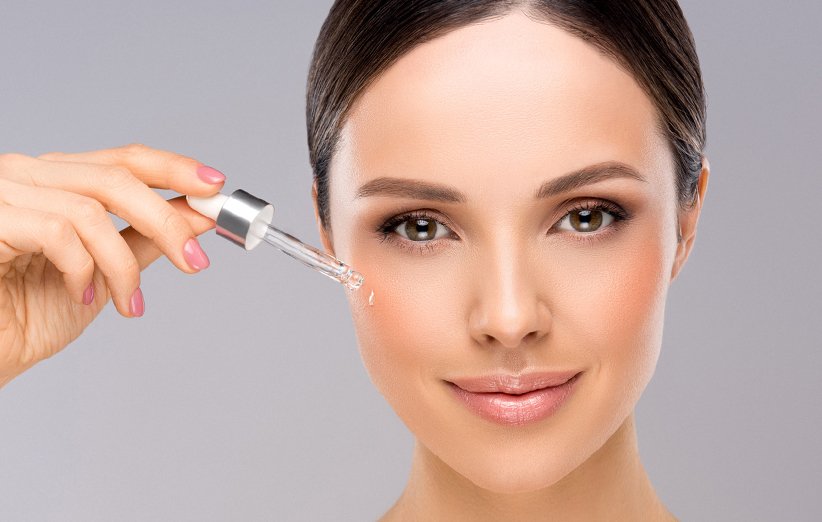Everything about Retinol and its Benefits for Skin
Posted by HOOMAN MORADTALAB

Everything about Retinol and its Benefits for Skin
To make your skincare routine effective, in addition to using quality products regularly, you need to have the necessary knowledge about skincare products. You should identify your skin type, know your skin problems, and choose suitable products for yourself by being aware and knowledgeable about useful products and ingredients for the skin. Of course, consulting with skin specialists is a top priority, but gaining general knowledge about the skin and useful supplements for the skin can also be very helpful. In this article, we introduce retinol, one of the well-known and popular ingredients for skincare. Stay with us.
What is Retinol?
Retinol is one of the derivatives of Vitamin A and is known as one of the most recognized compounds for skincare in the market. Retinoid is the basic form of Vitamin A, and Retinol and Retin A are its derivatives. Retin A is the active form of Retinol and has much greater power, which is why purchasing it is only possible with a doctor's prescription. Retinol is the mildest form of this substance and can be used even without a prescription.
Retinol has numerous potential benefits for skincare, but it also has side effects that need to be considered. In this article, we will discuss these benefits and side effects.
What does retinol do?

Unlike other skincare ingredients, retinol doesn't simply remove dead skin cells from the skin. The small molecules that make up this compound penetrate from the outermost layer of the skin, known as the epidermis, to the middle layer, known as the dermis. When retinol reaches this middle layer of the skin, it helps neutralize free radicals. This process ultimately leads to the production of elastin and collagen. Collagen and elastin can have a plumping effect and reduce the following on the skin:
- Fine lines
- wrinkles
- enlarged pores
Retinol, a derivative of vitamin A, has a type of exfoliating effect on the skin's surface that can help improve skin texture.
Although Retinol is sometimes prescribed to help treat acne and related scars, it is usually prescribed by doctors for severe acne and targets inflammation in the skin tissue and bacteria.
What skin problems does Retinol treat?

Retinol is primarily used to address the following skin concerns:
- Fine lines
- wrinkles
- Sun damage and other signs of photodamage, sometimes referred to as photoaging
- Uneven skin texture
- Melasma and other types of hyperpigmentation
To achieve the best results from products containing this compound, try to use them routinely. However, it may take several weeks to see significant improvements.
Possible side effects of using Retinol
While Retinol is approved by the Food and Drug Administration (FDA), using this substance may still cause side effects for the skin. Individuals who use this compound to address their skin concerns may experience dryness and irritation of the skin after some time. Other possible side effects may include:
- Redness of certain areas of the skin
- Skin itching
- Peeling of certain areas of the skin.
To reduce these side effects, try using retinol once every other night or twice a week instead of daily use. If you still experience skin irritation, it is best to consult with a dermatologist. It is also recommended to talk to a dermatologist even before starting to use a retinol product to see if it is suitable for your skin or not.
Less than 10% of people using retinol may experience more severe side effects, which include:
- Worsening of acne
- Worsening of eczema
- Skin discoloration
- Photosensitivity
- Rash
- Skin burning
- Swelling
Using Retinol 30 minutes after washing your face may also reduce skin irritation. If you use more than one product containing Retinol at the same time, the risk of side effects may be higher. Read product labels carefully, especially if you use a combination of products labeled "anti-aging" or for acne, as they likely contain Retinol. Also, keep in mind that due to the risk of sun sensitivity, Retinols are best used at night.
When using retinol, pay attention to these points:
- According to skin experts, exposure to sunlight may exacerbate some of the drying and irritating effects of retinol. If you use this substance, be sure to use sunscreen products with an SPF of over 25 before going out in direct sunlight.
- Generally, it is recommended that pregnant women avoid using retinol. If you think you are pregnant or planning to become pregnant in the near future, consult your doctor about using retinol.
- The use of retinol may exacerbate eczema and rosacea. If you have active eczema and rosacea, avoid using retinol.
When should we see a doctor during the period of using retinol?
Although retinols are available over the counter, if you have severe skin problems, it is better to consult with a dermatologist before using a specific product containing this substance to evaluate your skin and prescribe the best product for you.
Also, if you have not noticed any changes in your skin after a few weeks, it is better to see a doctor who can prescribe other combinations and formulations for you. Stronger combinations and treatments that are usually prescribed instead of retinol include the following:
Alpha-hydroxy acids, such as glycolic and citric acids, to combat wrinkles and sagging skin Beta-hydroxy acids (salicylic acid) to help improve skin tissue and acne Chemical peels to help shed the outer layer of skin (epidermis) to improve skin texture and uniformity Microdermabrasion, which can help with skin texture and uniformity. Fillers that can fill in fine lines and wrinkles. Laser treatment, which can be effective in removing skin blemishes, red and brown pigments, or scar and acne marks.
Summary:
Retinol, a derivative of Vitamin A, has a very good effect on treating and preventing wrinkles, acne, and open pores. This compound is available without a prescription and is used in many products to prevent aging, fight acne and acne scars. However, the effects of this substance may take several months to show, and patience is required when using this combination.
Another point to emphasize is that if you experience severe side effects when using products containing retinol, be sure to consult a dermatologist about using this substance.



